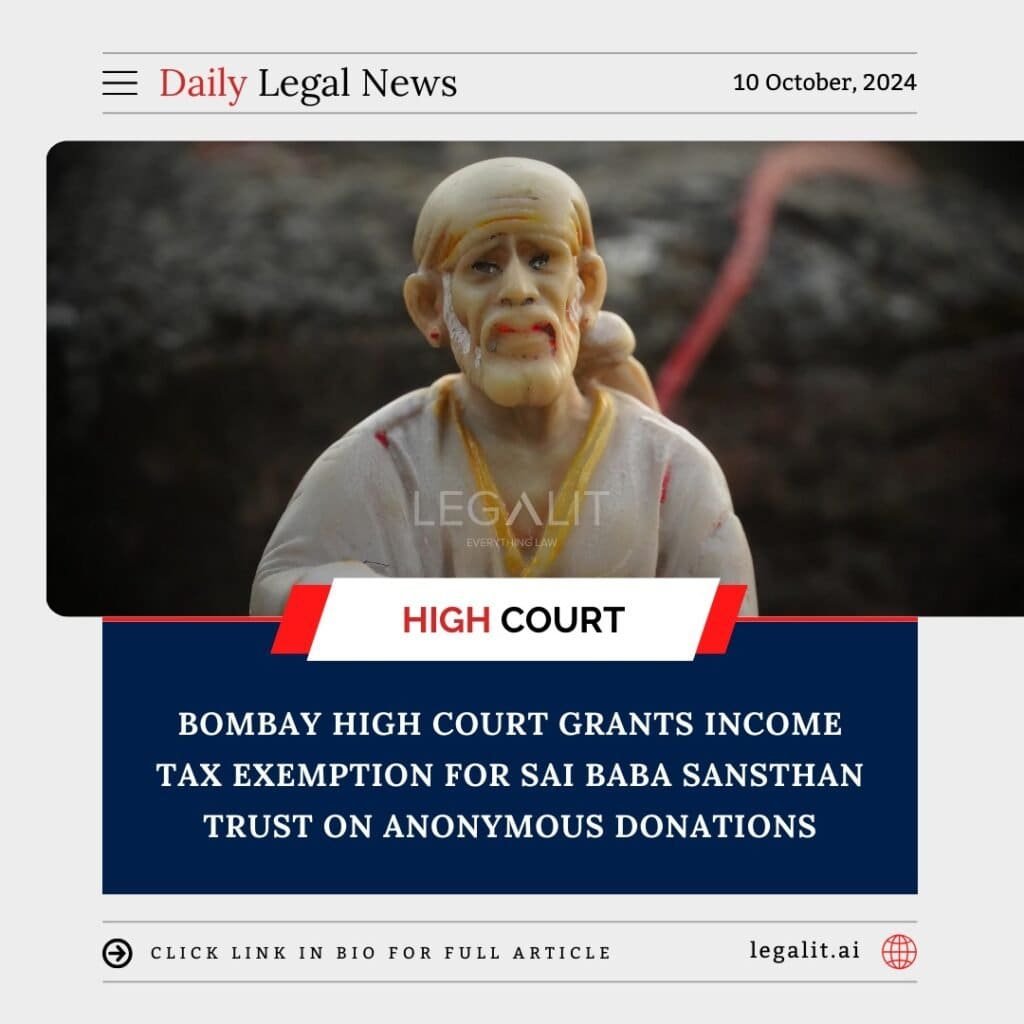
Background of the Case
The Bombay High Court recently ruled that the Sai Baba Sansthan Trust, based in Shirdi, is eligible for income tax exemptions on anonymous donations. The trust, which manages the revered Sai Baba temple, had received a significant amount of donations, many of which were anonymous. However, the Income Tax Department previously contested that such donations should be subject to taxation under Section 115BBC of the Income Tax Act, which imposes tax on anonymous contributions unless specific conditions are met.
Court’s Ruling and Reasoning
The Bombay High Court, in its judgment, held that the Sai Baba Sansthan Trust qualifies as a religious and charitable organization under the provisions of the Income Tax Act. According to the court, anonymous donations received by such entities are exempt from tax, provided they are used for religious and charitable purposes. The court recognized the trust’s long-standing contribution to religious and social welfare activities and ruled that the trust is entitled to tax exemptions even on anonymous donations, which are considered offerings to a religious institution.
The court further reasoned that as long as the donations were made in good faith and utilized for charitable purposes, taxing these anonymous contributions would go against the spirit of religious freedom and charitable support.
Implications of the Judgment
This ruling has significant implications for religious institutions and charitable organizations across India. It sets a precedent that anonymous donations made to recognized religious and charitable trusts can be exempt from income tax, provided the funds are utilized for the purposes for which the trust is registered. This decision will likely lead to increased protection for religious trusts receiving anonymous donations.
It also reinforces the legal distinction between religious donations and other forms of financial contributions, ensuring that such offerings are not unfairly taxed, thereby supporting the ongoing charitable work of such institutions.
Need for Reforms
While this judgment is beneficial to religious trusts, it brings to light the complexities surrounding anonymous donations. To avoid potential misuse, there may be a need for clearer guidelines and reforms to ensure transparency in how such funds are utilized. Stronger regulatory oversight could ensure that such exemptions are only granted to institutions genuinely committed to their stated religious and charitable purposes.
Conclusion
The Bombay High Court’s decision to grant income tax exemption to the Sai Baba Sansthan Trust on anonymous donations reflects the court’s acknowledgment of the trust’s charitable and religious nature. It is a landmark ruling that could provide financial relief to other similar trusts across the country while promoting religious and charitable activities. The judgment also encourages reforms to maintain transparency and accountability in managing anonymous donations.